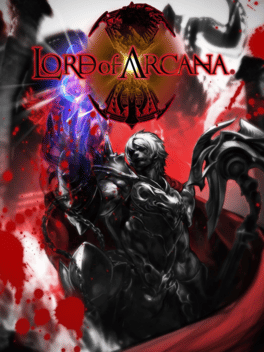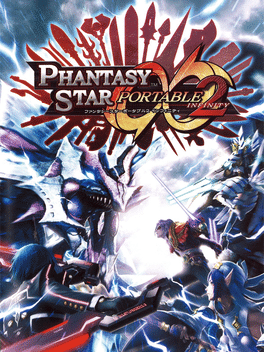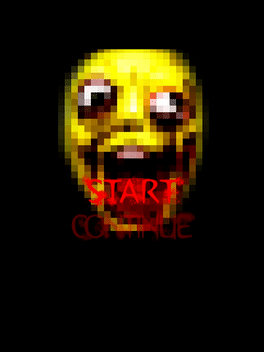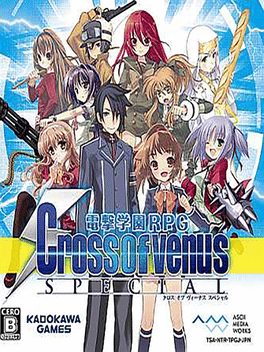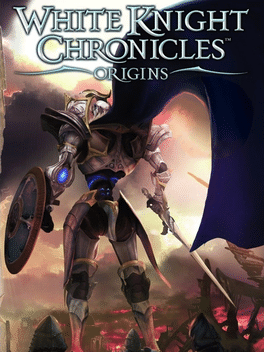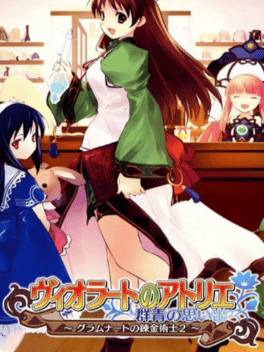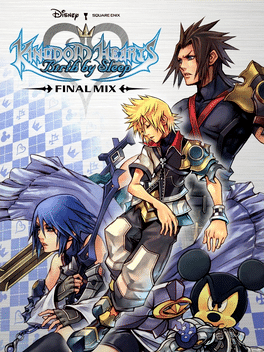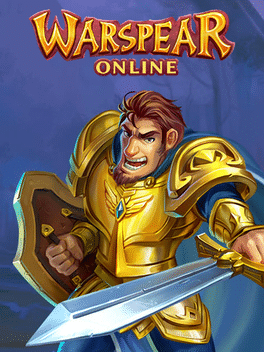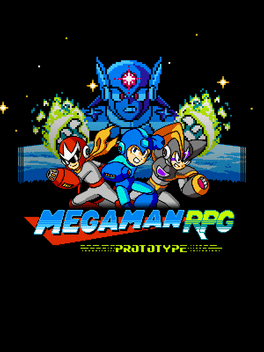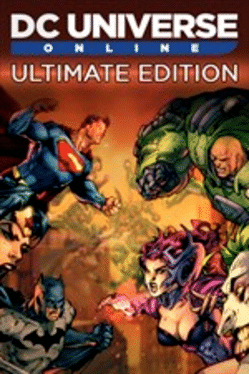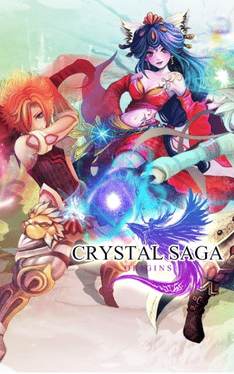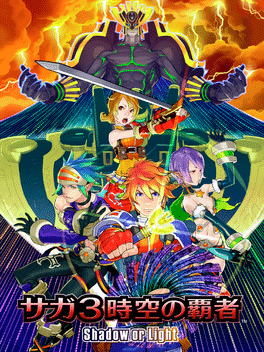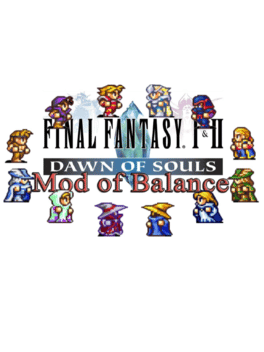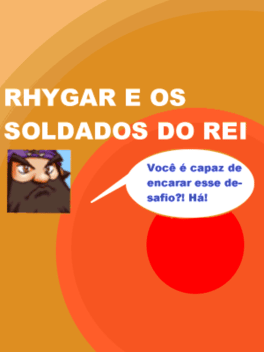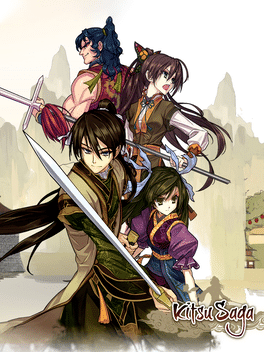New Xbox 360 Games - Page 184
-
Lord of Arcana
2011
Lord of Arcana
2011
star 5.9Lord of Arcana is an all-new brutal action role-playing game from Square Enix for the PSP (PlayStation Portable) system. Dive into a world filled with vibrant visuals and non-stop multiplayer action in this new brutally visceral action RPG game Multiplayer gameplay available for up to four players, allowing you to team up with friends to slay tough monsters and battles together. The stunning monster artwork in the game has been designed in collaboration with many well-known illustrators who have been successful both abroad and in Japan, including some renowned Square Enix staff. With incredible visuals and non-stop action, mixed with great multiplayer co-op and creatures designed by a variety of world-famous illustrators, LORD OF ARCANA is not to be missed when it comes to the PSP system. -
Phantasy Star Portable 2 Infinity
2011
Phantasy Star Portable 2 Infinity (or PSP2∞) is an enhanced version of PSP2 released on 2/24/2011 in Japan. The game features a new muiltiplayer lobby, new storyline, a new race called Dumans, and the new weapons will take the total count to over 3,000. -
Monster Hero
2011
Monster Hero
2011
Monster Hero was a game where you battled monsters by launching projectiles and knocking down towers in an Angry Birds fashion. You could capture monsters and train them, and eventually they would evolve. The game had social aspects as it was made for the Facebook platform. -
Oyadori no Ko
2011
Oyadori no Ko
2011
It’s widely known among Devil followers. Once upon a time, there was a girl possessed by the Demon. Although the Demon was expelled from her body after that, its words left. "There have to be 9 people offering to the Devil every year on the full moon night. If anyone survives 3 days after being offered to the Devil, the Devil will be back to this world. The Devil will grant this world happiness and freedom. -
Dengeki Gakuen RPG: Cross of Venus Special
2011
It's an enhanced remake produced in commemoration of the fifteenth anniversary of ASCII Media Works light novel imprint Dengeki Bunko. The player assumes the role of an unnamed protagonist attending Dengeki Academy who stumbles into a fight between heroines from Dengeki Bunko novel worlds and the evil organization Zetsumu. The reality-based world of Dengeki Academy and the novel worlds have become connected and the player is able to help the Dengeki Bunko heroines fight the Zetsumu by going between the worlds. -
White Knight Chronicles: Origins
2011
10,000 years before the original PS3 game takes place, there was a period of strife known as the Dogma Wars. This struggle is between the Yshrenian Empire who are harnessing the power of the Knights in a bid to conquer the world, and the Athwani Mage Kingdom who are trying to stop them. These events would shape history to come in the White Knight Chronicles saga, and White Knight Chronicles: Origins tells the story of the unsung heroes who lived through this period of unrest, only to be forgotten in the annals of time. -
Atelier Violet: The Alchemist of Gramnad 2 - The Memories of Ultramarine
2011
On a peninsula to the south west of the continent Gramnad, there is the Kingdom of Kanalland. Here, there is a small and underpopulated village by the name Karotte Village. The main protagnoist Violet lives there with her family, although her parents are leaving Karotte Village. Violet, however, refuses to leave. Violet is very confident about her idea to open up a shop in town, even though her father doesn't support her idea. Their parents will return in three years, and see how the siblings are doing. Until then, Violet will need to prove that she can run her own shop. -
Kingdom Hearts Birth by Sleep Final Mix
2011
star 7.6The Final Mix gives you more challenges and the chance to hear the English voices. The game is based on the upgraded US version, with more boss battles, game modes and even more mini-games. Think you've already become the ultimate Key Blade Master? Think again. The game contains secret episodes that you can unlock, and in the single player mode, you'll meet the mysterious man, see what secrets he'll reveal about the powerful Kingdom Hearts. Controls and the D-Link are updated, so its easier to use and you can collect stickers on your journey. There are 9 more missions for you to clear and new challenging bosses in the multi-mode. These bosses aren't just the lord of the world, they could be the world themselves. Now you can battle the whale that swallowed Pinocchio's ship. Kingdom Hearts is being born again, pick up your key blade and set off on your journey once again. -
Warspear Online
2011
Warspear Online
2011
Opposition between two mighty Alliances is growing! You will have to choose your side in this war, level up your character and Guild, solve the mysteries of a huge open world, fight enemies, learn skills and work on your combat tactics, participate in tournaments, get or craft unique gear and explore dungeons. -
Mega Man RPG: Prototype
2011
Mega Man RPG Prototype is a browser-based fangame where you square off against hordes of increasingly challenging robot masters in turn-based battles, paying tribute to the battle systems of retro role-playing games released in the late 80s and early 90s. Prototype merges the combat and collection mechanics of the Pokémon series with the beloved characters and special weapons of the classic Mega Man series to create something familiar yet unexplored. The story unfolds in the original series timeline and features elements from across those games, but Battle Network fans may also recognize a familiar face or two. With three distinct campaigns, more than a hundred playable characters, and an ever-expanding array of unique abilities, there's a wealth of discovery awaiting in The Prototype. -
Crystal Saga: Origins
2011
A US version of Saga of Hero, it's a 2.5D MMORPG game. Crystal Saga is a free-to-play browser 2.5D MMORPG set in the fantasy world of Vidalia. Not only does it offer a vast virtual world, but also features a captivating and detailed storyline. Players may choose from five available classes: Mage, Paladin, Priest, Ranger and Rogue. Tame a slew of available pets, aiding you and your group in battle. Participate in one of the many daily contests, events and dungeons that Crystal Saga has to offer. -
SaGa 3: Jikuu no Hasha - Shadow or Light
2011
SaGa 3: Jikuu no Hasha - Shadow or Light is a game released in 2011 for the Nintendo DS exclusively in Japan. The game is a remake of SaGa 3: Jikuu no Hasha, featuring full 3D cel-shaded graphics, all new artwork by Gen Kobayashi and an arranged soundtrack by Kenji Ito. -
Weapons of the Gods
2011
Weapons of the Gods
2011
WOG or Weapons of the Gods is the Chinese online multiplayer RPG in which Gods and Demons battle each other for the artefacts known as the Weapons of the Gods. Running on Unreal Engine 3, this game truly stands out with its stunningly beautiful sceneries, fluid-feeling movement, impressive special effects, and dynamic shadows. Gods and demons have fought for power over this world for many millennia, but neither side could prevail. It was decided to place the fate of the world in the hands of mortals by sending the Weapons of the Gods down to earth. These weapons are so peculiar, so powerful, so fascinating, that no human can ever resist the appeal. Sooner or later, either the gods will prevail and the earth shall bend before their will, or the demons will win and plunge the entire world into chaos and madness. -
Rhygar e os Soldados do Rei
2010
Rhygar is a farmer who lives with his father on their ranch. One day, he needs to sell their cow, only to watch his father being murdered by monsters on the way back home. Now, begins his journey to become a Knight of the King in order to get revenge on the monsters who killed his father. Rhygar e os Soldados do Rei (Rhygar and the Knights of the King) is one of many free indie brazilian games created using RPG Maker 2000 during the boom of the engine in Brazil in the 2000s. Like others of its kind, it's very unpretentious and full of typos and goofy jokes. It became somewhat of a forgotten classic among brazilian gamers of that era, and its relative success helped the aforementioned boom of other small RPG Maker 2000 brazilian games, including two lesser known sequels. -
Mr. Krasnoludek, Teach Me Your Magic Spells
2010
In this game, a cat named Theremin tries to learn the magic spells of Polish dwarves. Wield devastating dark magic and explore an enchanted forest. Experience a day and night system which changes the nature of enemy mobs. Pick onions and potatoes and stuff, or make a friend! -
Kitsu Saga
2010
Kitsu Saga
2010
Kitsu Saga was a free-to-play 3D fantasy MMORPG developed by X-Legend and published by Aeria Games. The game featured conventional MMO trappings including many quests and a variety of mounts, but what set Kitsu Saga apart were the multiple-character ages where players could adventure as either children or adults, and the ability to fight along the Kitsu, fox-like creatures. The game was shut down in July of 2011.

